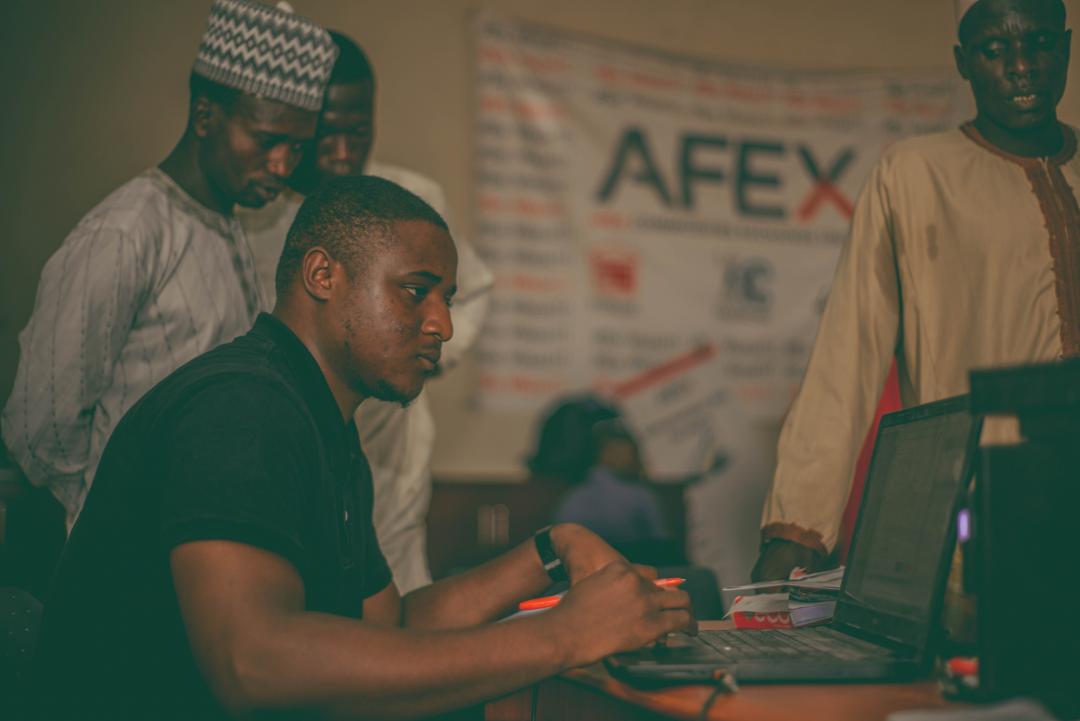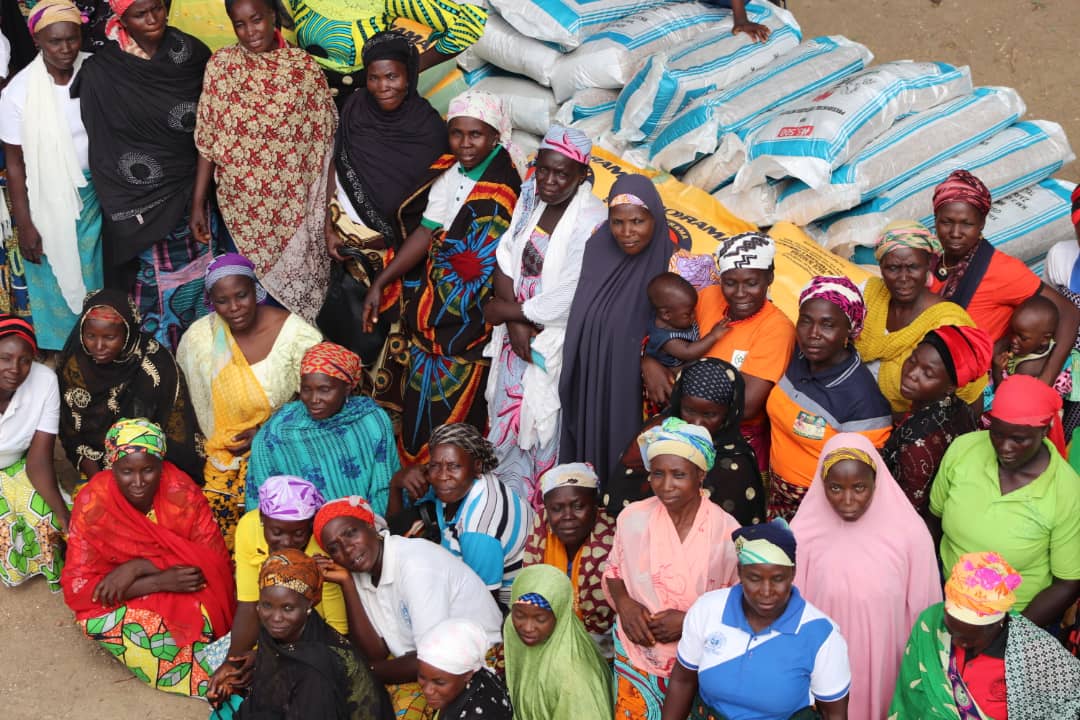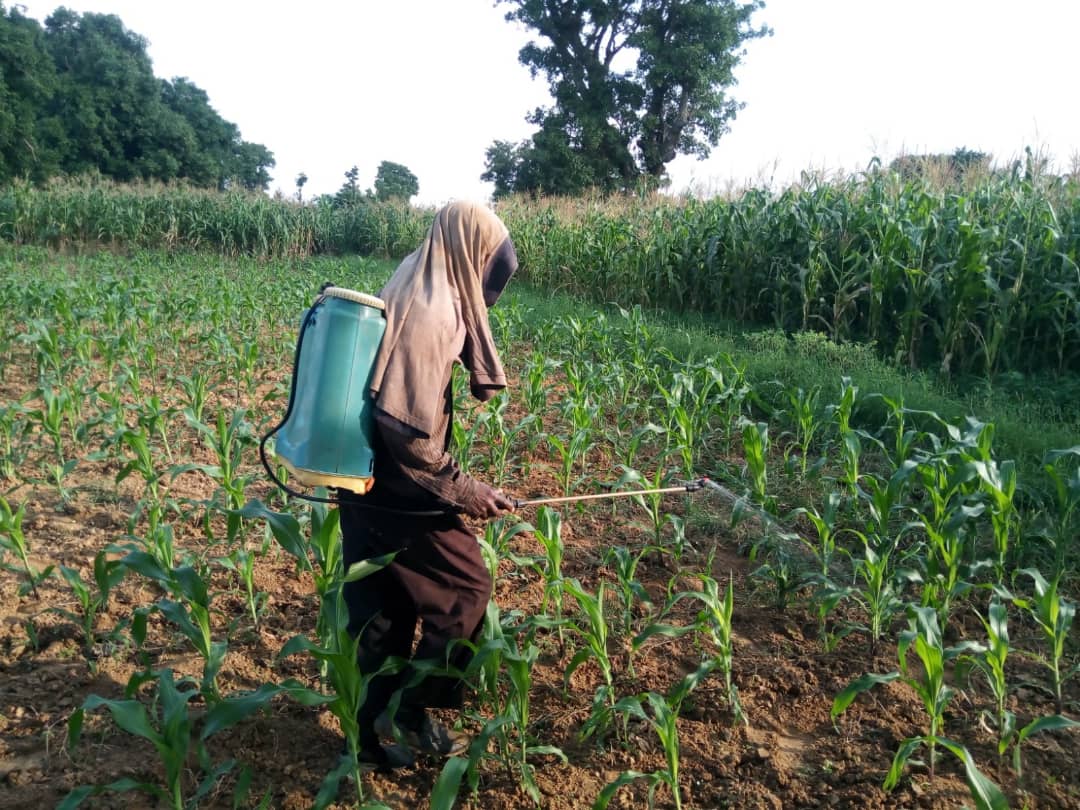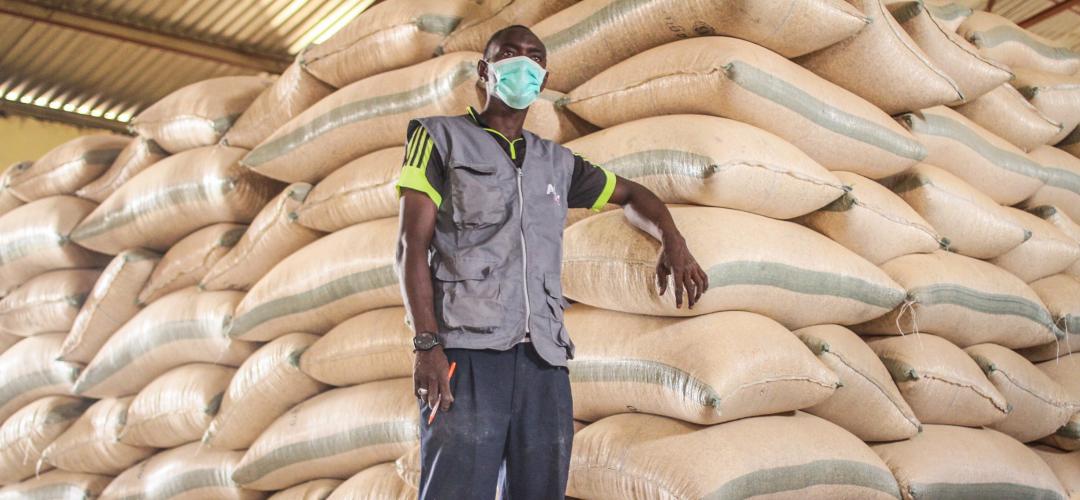AFEX Nigeria – Leveraging technology to combat food insecurity
Hello Hemense, could you tell us about AFEX Nigeria, especially its inclusive business model?
At AFEX Nigeria, we believe we can solve Africa's food insecurity problems. From our perspective, there are three main issues in the sector: a lack of capital, a lack of knowledge, and a lack of market access. We use digitisation to solve some of these problems. We do everything across the board to ensure an efficient market – providing financial inclusion services, assisting with input disbursement, doing some farmer education, and data analytics.
In March, you published a report on the impact of Covid-19 on the Nigerian commodities market. It mentioned a price decline for staples like soybeans and expressed concern about supply chain disruptions. Could you tell me what has happened since then?
It has been a very tough operating environment. Since then, prices have spiked across the board, except maybe for soybean. But for maize and paddy rice, we have seen at least a 70 percent increase in pricing. A couple of factors were at play here. On the macro level, corona floored demand for crude oil, which led to a decline in oil revenue. About 80 percent of Nigeria's government revenue is from oil. This led to a depreciation of the Naira, which made staple crops a lot more expensive. So, it was a tough environment for smallholder farmers and for the population at large.

The report also predicted negative impacts on food security and farm income in Nigeria. What has happened since then?
Those worries are still at play. There was a border closure last year for some staple crops, such as rice. The interstate lockdown that took place also made it a lot harder for farmers to find work during the off season. So, at the start of the season, they had less money to buy inputs. A lot of farmers found shortcuts: Maybe they did not apply as much fertiliser as they normally would. So, we expect that yields will reduce come the end of the season.
Also, the movement restrictions made it a lot harder for farmers to access their farms. They could not congregate labourers to help out on the fields. Moving commodities from one location to another also became a lot more expensive. It was a difficult situation, but there have been some government policies being implemented to ease up the strain on the population.
How did the situation impact your company and the farmers you are working with?
The biggest impact was felt around input supply. All the disruptions made the importation of raw materials a lot more difficult, which filtered down the chain to us. So, it became a lot more difficult to supply farmers with inputs in a timely manner.
Also, as mentioned earlier, many farmers working as day labourers outside the season found it harder to get cash. Hence, they ended up selling some of their stored produce. Staple prices were a lot higher, so they got more cash. But then, they also had to buy food at a higher price. It was a net neutral position for them.
As for AFEX specifically, we had to try to be more flexible and adaptable to the current situation. Corona, as destructive and as terrible as it has been, has also brought a lot more focus on agriculture. With that spotlight, we are trying to maximise this for the nation. This is not just a short-term play for us. It is a long-term strategy to see how we can become more independent when it comes to food.

So, how exactly did AFEX adapt to the pandemic?
The biggest change was that everything became decentralised overnight. With the limited mobility, we could not get from the head office into the field to help with operational issues. So we saw a lot more local empowerment, with employees stepping up to different challenges. At the same time, we leveraged technology to start having more client meetings via conference calls.
What resources did you found useful in adapting to Covid-19?
On the macro level, the Nigerian government intervention was incredibly important to us: their support in terms of providing passes and letters of authorisation to move around, as well as several funding programmes that were launched by the Central Bank of Nigeria and the Ministry of Agriculture. Those proved imperative, as cash dried up in the economy.
In addition, we relied more heavily on our people. They have been exceptional in this environment, being malleable, being open to change, working under different conditions. You saw the divide between field and office roles minimise.
What else would you find useful, which does not exist yet?
As we grow, it is all about strategic partnerships – specifically on the technical side. We are barely scratching the surface of what we could do with technology. Having a partner that can come in with greater data analytics skills, weather reporting, or any use of technology around agriculture would be a huge bonus for us. Also, having a community of organisations that are going through the same situation that we can strategise around, or that are facing similar issues, would be hugely impactful.

If you look back to the last six months, what would say were the main lessons learned for AFEX?
Over the last six months, it was important to rely on the relationships we created prior to the advent of the pandemic. When it came to a shortage of inputs around the country, the partners that had worked with us for years were more willing to supply us and even provided us with credit.
Second is that you always need to have alternatives. Many things did not go as planned, so having a backup made us resilient. If a truck were not able to get through, we needed to have alternatives we could rely on.
Lastly, we saw the need to be creative. In the past, we may have been overly thoughtful in executing projects, but given the environment and the dire need for solutions, we pushed a lot of projects and activities to market quicker than we would otherwise have. We implemented different programmes that leveraged technology, all to get past that last mile and reach the farmer.
From these lessons learned, is there anything you can recommend to other inclusive business owners?
Definitely. Be ready to adapt, be ready to change, be ready to move quickly and leverage technology. No one could have predicted corona, or at least no one could have predicted the impact it was going to have on society. We know a lot of businesses crumbled under the situation. If you just hold on to your original strategy, you will not survive long term.
Also, focus on your key stakeholders. For us, it is farmers. At the end of the day, we ask ourselves continually “How do we add the most value to a farmer's life?”. Meeting their needs will increase our profitability as well.
Thank you. Is there anything else you would like to add?
There are two big things we are excited about. We have recently launched ComX, which is our digital trading platform for commodities. We can provide market access to farmers where the grain in their warehouse can be sold to anybody all over the world. We are excited about growing that platform.
We are also excited about our Agro Service Provider model. With the model, we are looking to empower entrepreneurs to provide the same level of service that we do. We will provide them with financing and technology, all in an effort to reach more people in places where AFEX as an organisation is not established.
